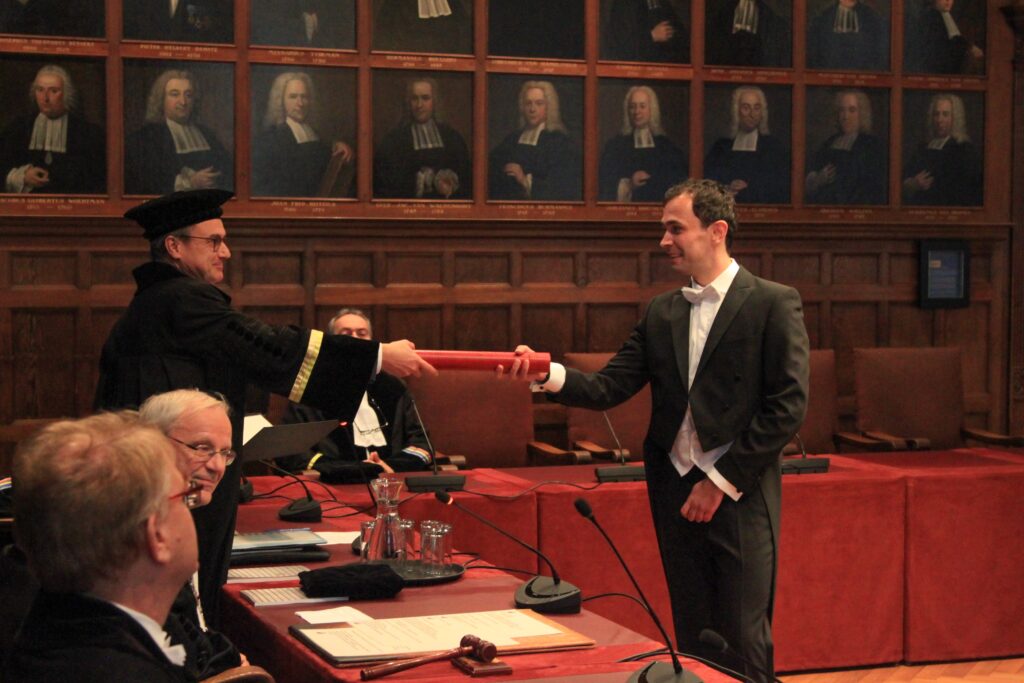PhD defense of M.K. Jongkind MSc
The annual production of plastics is soon expected to exceed the 400 million metric tons, of which polyethylene has the largest market volume share. The polyolefin industry currently stands as one of the most mature, sustainable, and efficient technologies relying on fossil, and more recently also renewable, feedstocks. These materials find applications everywhere in our daily life, mainly because their properties, such as rigidity and flexibility, are tuned with relative ease. Despite these benefits, recent years have seen increased attention to the environmental issues that plastics cause. These factors continue to drive research towards the improved production of polyethylene.
This research revolved around ethylene polymerization, in which Cr/SiO2 Phillips-type catalysts are one of the grand workhorses. This type of catalyst is unique, because is able to polymerize ethylene without the addition of a metal-alkyl component. However, these components are often added on an industrial scale because they significantly improve catalytic performances and allow tailoring of the final polyethylene properties.
Yet it is critical to understand this activation procedure for improving existing catalysts and for developing new ethylene polymerization catalysts. To that end, we used advanced spectroscopic and microscopic techniques to investigate the activation procedure of Cr/SiO2 Phillips-type catalysts as well as the influence of metal-alkyl components on the properties of the polyethylene products. In a last part we combined the gathered knowledge to investigate the use of Cr-based Metal-Organic Frameworks as potential new ethylene polymerization catalysts.
Congratulations on this great achievement!
Source: website Utrecht University

